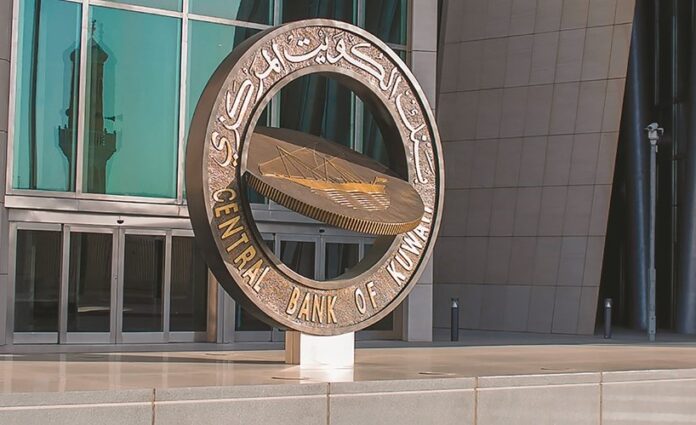Banks ask exchange firms to file daily reports on all client transfers
Exchange companies must provide detailed transaction data on every invoice, whether exceeding or below KD 3,000, when their dollar purchases are funded through bank credit lines.

• The Central Bank of Kuwait told banks they may keep buying dollars to meet client needs, including exchange firms, but funds must go only to genuine requirements.
• Dollar purchases for investment, speculation, or non-commercial purposes must come from banks’ or exchange firms’ own resources, not Central Bank funding.
• The Central Bank has required supervised entities to submit more comprehensive information to its database. This effort is linked to Kuwait’s preparation for the international mutual evaluation led by the FATF.
Banks have asked exchange companies to submit daily detailed reports on all client transfers, informed sources told Al-Rai newspaper.
Under the new requirement, exchange firms must provide comprehensive transaction data on every invoice, whether above or below KD 3,000, if their dollar purchases are financed through bank credit lines. However, if their needs are covered through the interbank market, they are not obligated to do so.
The shift raises questions about the change in oversight and the reasons behind tighter scrutiny. According to sources, banks are acting to meet directives from the Central Bank of Kuwait, which requires ensuring that dollar sales to exchange companies are used strictly for money transfer operations. The Central Bank has emphasized that such financing cannot be used for speculative or investment activities.
Regulatory obligation
Sources revealed that the Central Bank of Kuwait has informed local banks that they may continue purchasing dollars from it to cover the needs of their clients, including exchange companies, without any change to existing procedures. However, the banks must ensure that the dollar amounts obtained from the Central Bank are directed primarily towards meeting their clients’ actual requirements.
This covers the operations of exchange companies as well as transactions carried out by institutions and companies, provided these transactions fall strictly within their commercial activity. Any other purposes must be covered through alternative means, most likely the interbank market, where the exchange rate is determined by supply and demand and is generally higher than the rate offered by the Central Bank.
The sources added that the Central Bank did not specify the exact mechanisms that banks should adopt to monitor the use of dollars provided to exchange companies. As a result, several banks have taken independent measures to ensure compliance.
One common approach has been to expand the scope of reporting required from exchange companies.
Under this measure, firms are asked to provide detailed data on all transfers executed daily whenever their purchases are covered in dollars.
This additional reporting is viewed as a protective step by banks, enabling them to safeguard against potential accountability during Central Bank audits of their foreign currency liquidity books.
If a client fails to comply with these reporting requirements, banks may suspend the client’s open credit lines used for financing dollar purchases, according to the sources.
Additional information
The sources also noted that the Central Bank may follow up by requesting further details on certain clients of exchange companies. This could include inquiries into the due diligence measures undertaken by these firms, particularly in verifying customer identities and assessing associated risks. Such measures fall within broader regulatory efforts to ensure compliance with anti-money laundering (AML) and counter-terrorist financing (CTF) frameworks.
Although the Central Bank has the capacity to meet any legitimate dollar demand locally—whether by institutions or individuals—the heightened scrutiny is tied to Kuwait’s exchange rate policy for the dinar.
According to the sources, dollar purchases by banks or exchange companies for investment, speculative, or non-commercial purposes must be funded from their own resources. These resources may include existing currency stocks or purchases made through the open market. The Central Bank will, however, continue to provide foreign currency support for genuine trade and commercial purposes, in line with practices followed by other regional central banks that maintain fixed exchange rate regimes.
The sources explained that the Central Bank’s exchange rate policy aims to preserve the dinar’s relative stability against major currencies. The rate is determined using a weighted basket of currencies from countries with which Kuwait maintains significant trade and financial ties.
Corrective measures
In addition, the sources highlighted that the Central Bank has, for some time, required supervised entities to submit more comprehensive information to its database.
This effort is linked to Kuwait’s preparation for the international mutual evaluation led by the Financial Action Task Force (FATF). The review assesses the country’s technical compliance with global standards on combating money laundering and terrorist financing, including legal frameworks, supervisory regulations, and internal controls.
With Kuwait expected to submit its final report on reform measures to the FATF in November, ahead of the second evaluation round scheduled for February 2026, the Central Bank and other regulatory bodies are accelerating the pace of reforms.
These steps focus on closing regulatory gaps, strengthening institutional oversight, and improving transparency, especially regarding the identification of ultimate beneficiaries of financial transfers.
According to the sources, these corrective actions are intended not only to satisfy FATF requirements but also to reinforce the stability and integrity of Kuwait’s financial system.












